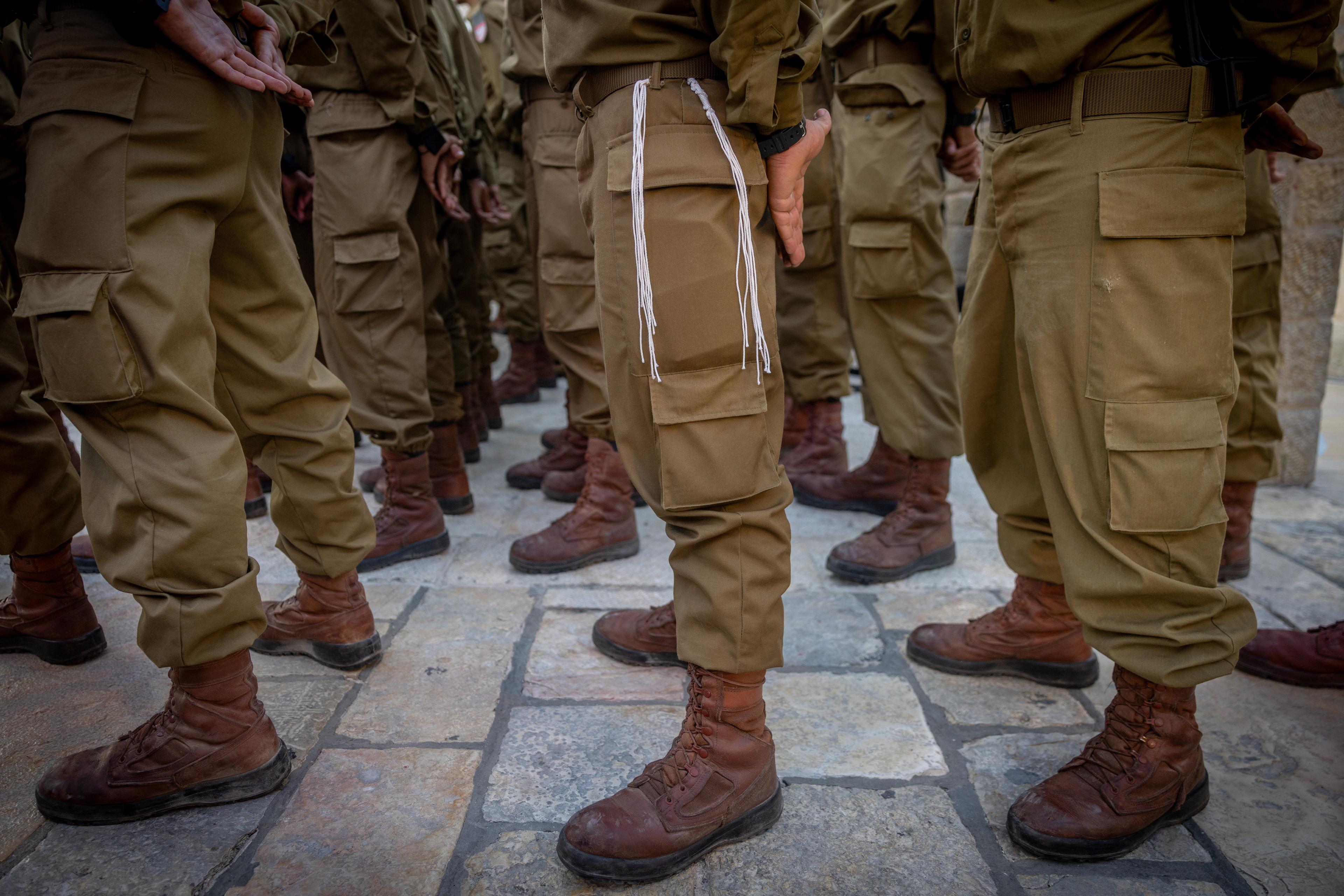IDF struggles with increasing Haredi resistance to Military recruitment
Only 11% of Haredi draftees show up for IDF call-up, amid rising tensions over recruitment plan
Updated data reveals that just 11% of the Haredim (ultra-Orthodox Jews) summoned this year for their first military call-up actually reported for duty, sparking concerns within the Israeli Defense Forces (IDF) and the government about the future of the recruitment process.

Out of the 3,000 Haredim summoned in three waves, only 330 showed up for selection, with further declines seen in subsequent waves—240 in the first wave, 58 in the second, and only 32 in the third. Hundreds of those who failed to report are now facing criminal sanctions, including arrest warrants and travel bans, according to Ynet news reports.
The IDF has long aimed to recruit around 10,000 Haredim by 2026, but these latest figures highlight significant challenges in meeting recruitment targets. The IDF's plan is part of a broader effort to increase Haredi participation in the military while maintaining their distinct religious lifestyle. This initiative includes creating fully separated tracks within the military for Haredi soldiers, with special accommodations such as kosher food and Haredi commanders. However, the success of the program hinges on cooperation from the Haredi leadership and effective enforcement of conscription laws, without offering preferential treatment to any sector.
In the wake of the recent data, IDF officials are pushing for immediate action, emphasizing that the success of this plan is contingent on swift implementation across all its components. Plans to recruit additional Haredi soldiers include another 7,000 summonses, which will be issued by the end of the month. However, the plan is met with resistance from Haredi political factions, especially over the issue of sanctions. Some ultra-Orthodox leaders view the imposition of penalties on non-enlisting individuals as a persecution of the Torah world.
The Israeli government is also deliberating changes to the mandatory military service law, including the extension of service from two years to three, a policy previously in effect until about a decade ago. This extension would apply to new enlistees over the next five years, although it would not be retroactive. The proposal, which is intended to address wartime needs, faces opposition from the Ministry of Finance, which argues that it could delay young people's entry into the workforce.
Additionally, the IDF's plan includes raising living allowances and release grants for conscripted soldiers, as well as increasing the age for exemption from reserve duty from 40 to 45, with a new reserve duty period set at one and a half months every two years. However, during the next three years, a temporary increase in reserve duty is expected, with soldiers potentially serving up to two and a half months annually, depending on security needs.
The Haredi recruitment plan also aims to address the broader issue of military service inequality, as the IDF's combat roles have seen lower enlistment rates from the Haredi sector. While the recruitment rate for combat positions in the general population stands at 45%, the IDF aims for 35% of Haredi draftees to be assigned to combat units, specifically targeting 1,200 to 1,500 Haredi fighters annually.
Despite these efforts, only a fraction of the 80,000 eligible Haredi youths are expected to enlist in the coming years, with the IDF estimating that only about a third of them meet the criteria for conscription, as many continue their religious studies in yeshivas or work in informal sectors.
The tension surrounding this issue is not limited to the IDF's recruitment efforts. Leading political figures, including Shas party chairman Aryeh Deri and members of the United Torah Judaism party, have voiced their objections to any recruitment law that forces Haredim to serve. These leaders emphasize that any new legislation should provide exemptions for those not studying Torah, a stance that has gained support from Haredi spiritual authorities.
The ongoing debate over Haredi conscription reflects the deep divides within Israeli society, where military service is seen as a national duty by many, but is also a contentious issue within the Haredi community, which views religious study as its primary mission. As the government grapples with the complexities of military service and equality, it remains to be seen whether a compromise can be reached or whether the issue will continue to spark conflict within the Israeli political and social landscape.